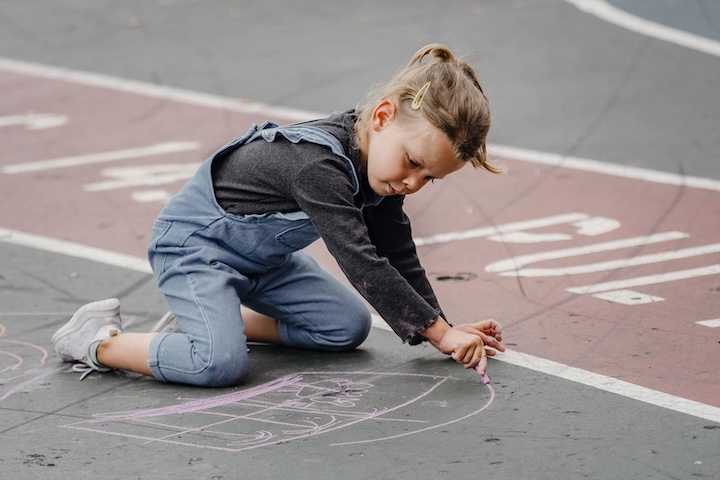I know this one is a heartbreak. If the title resonates, I’m so sorry that you’re going through the ache of seeing this play out for your child. We long for our children to have friends, community, a carpool, an invitation to a birthday party. If those are not things you are experiencing for your child, know that you’re not alone. What you and your child are going through right now is a season. It could be a long season. But don’t feel stuck and frozen in this difficult moment in time.
One perspective I would like to share with you: we don’t all need the same level of community. Some people like to have loads of friends. But for others, just one friend is really enough. It can be difficult if you’re someone who likes to have many friends, or if you experienced the hurt of having no friends at some point as a child. We want the best for our kids and that means allowing them to share in all the joys that we consider part of childhood. But it also means wanting to protect them from any hardships we may have experienced as children.
When you feel significant loss for your child, try to take one step back from your own feelings, hurts and hopes. It can help if you can find a way to ground yourself in the present. One way to do that is to notice 5 things you can see, 4 things you can touch, 3 things you can hear, 2 things you can smell and 1 thing you can taste. This is a little exercise that can help us stay present in the here and now rather than feeling swept away with emotions and concerns. Being present will help you be able to lean in with curiosity rather than reacting out of emotion.
Ask yourself, does my child WANT friends? Are they happy? This question is crucial and really helps determine your next step. If they are quite content, that is a different thing than if they feel lonely. If they don’t want friends at all, be aware sometimes children who have experienced traumatic or very unhappy school and social situations at a young age may begin to feel disillusioned with the whole idea of friendship. In that kind of situation, the first step may be to figure out what you can do to make school and group situations safe, pleasant and free of bullies. Also know that once a child is safe, they may still need time to heal or decompress before they are ready to reach out or step out into something new. With school trauma, the rule of thumb is that they need at least one month to decompress for every year that they were in a difficult school experience.
For a child who feels safe and is not in a “fight-or-flight” state with their nervous system, consider finding a friend based on one of their interests. If kids have a special interest in common, this is a great starting point for friendship. Look for baking clubs, Dungeons & Dragons groups, robotics, Pokemon card trading meetups, etc. Whatever the interest is, find a way to make it happen with other kids. This could be a video gaming group. I suggest that you don’t try to put them in a ton of different things. That may overwhelm them. Find one cool activity to cultivate and focus on, and go from there. If there isn’t a group, create one. See if you can host a chess club at your library, or a Warrior Cat book club. Online works too, and some kids find online to be a more comfortable first-step to friendships. (For online, you might consider starting with a Minecraft or other gaming group under the umbrella of a hosted class. This can give structure and safety. You’ll find some online class providers here.)
If your child isn’t ready (yet) to try an interest-based activity, and they have no friends, consider finding them a mentor. Depending on the age of your child, this could be a kind high school or college student who is up for chatting about your child’s special interest in WWII weaponry over milkshakes, or playing Mario Kart. These are first steps and allow your child to engage in a safe space with someone outside of the family.
Be encouraged- a lot of kids later find “their people” in college. They are no longer plopped into groups based only on age and school zone, but by career interest in classes that they have chosen. And, they are not assigned a school but have carefully selected the college or trade school to attend. There starts to be more interests in common at this point. Many of our bright and/or neurodivergent kiddos will be a step or two behind their peers in executive function development. This makes maintaining friendships a lot harder because we rely on executive function skills to remember to call someone back or to RSVP to a party invite etc. By college, many kids developmentally start catching up a little more to their same-age peers with their executive function.
Books I recommend:
- Why Will No One Play With Me?, by Caroline Maguire. (A personal narrative plus loads of explicit advice on supporting social skills in children.)
- Quiet, by Susan Cain. (For introverts and their loved ones!)
- Differently Wired, by Deborah Reber. (Supporting a twice exceptional child.)
With gratitude,
Christina

Leave a Reply